第19章 LETTER IV(1)
"Faithful unto Death"--"Foreign Devils"--Junks and Boats--Chinese Luxury--Canton Afloat--An Al Fresco Lunch-Light and Color--A Mundane Disappointment--Street Sights and Sounds--Street Costume--Food and Restaurants--A Marriage Procession--Temples and Worship--Crippled Feet REV. B. C. HENRY'S, CANTON, January 6.
In the week in which I have been here I have given myself up to ceaseless sight-seeing. Almost the first sight that I saw on arriving in this quarter, which is in Canton itself, was a number of Christian refugees, old men, women, and children, who, having fled from a bloody persecution which is being waged against Christianity about ninety miles from Canton, are receiving shelter in the compound of the German mission. It was late in the evening, and these poor refugees, who had sacrificed much for their faith and had undergone great terror, were singing hymns, and reading and worshipping in Chinese. In the place from which they came a Christian of wealth wished to build a church, and last week he was proceeding to do so, when the heathen, instigated by the district mandarin, seized upon him and four other Christians, and when he would neither say the word nor make the obeisance which is regarded as equivalent to denying Christ, they wrapped him in cotton wadding soaked in oil, tied him to a cross, and burned him, no extremity of torture availing to shake his constancy. They cut off the arms and legs of the four other persons, tied crosses to the trunks, and then burned them. This deed, done so near Canton, has caused great horror among the foreigners both here and at Hong Kong, and the deepest sympathy is felt both with the converts and the missionary priests. In the sympathy with the heroism and sufferings of those who have been "faithful unto death," all the Protestant missionaries join heartily, as in the belief that these victims are reckoned among "the noble army of martyrs." It is estimated that there are seven hundred and fifty thousand Romish Christians in China, many of them of the third or fourth generation of Christians, and in some places far in the interior there are whole villages of them. The Portuguese and French missionary priests who devote themselves for life to this work, dress, eat, and live as Chinamen, and are credited with great devotion.
It is most interesting to be brought by the spectacle of these poor refugees so near to the glory and the woe of martyrdom, and to hear that the martyr spirit can still make men "obedient unto death, even the death of the cross." A placard was posted up some time ago calling for a general massacre of the native Christians on Christmas Day. It attributes every vice to the "Foreign Devils," and says that, "to preserve the peace and purity of Chinese Society, those whom they have corrupted must be cut off." One phrase of this placard is, "The wickedness of these foreign devils is so great that even pigs and dogs would refuse to eat their flesh!"
Mr. and Mrs. Henry speak Chinese, and are both fearless, and familiar with the phases of Canton life. Of all the places I have seen, Canton is the most overwhelmingly interesting, fascinating, and startling.
"See Canton and die," I would almost say, and yet I can give no idea of all that has taken such a strong hold of me. I should now be quite content to see only the manifold street life, with its crowds, processions, and din, and the strange and ever-shifting water life, altogether distinct from the land life. The rice-paper pictures give a very good idea of the forms and colors of the boats, but the thousands of them, and the rate at which they are propelled, are altogether indescribable, either by pen or pencil.
There are junks with big eyes on either side of the stem, "without which they could not see their way,"* and with open bows with two six-pounders grinning through them. Along the sides there are ten guns, and at the lofty, square, quaint, broad, carved stern, two more.
This heavy armament is carried nominally for protection against pirates, but its chief use is for the production of those stunning noises which Chinamen delight in on all occasions. In these helpless and unwieldy-looking vessels which are sailed with an amount of noise and apparent confusion which is absolutely shocking to anyone used to our strict nautical discipline, the rudder projects astern six feet and more, the masts are single poles, the large sails of fine matting; and what with their antique shape, rich coloring, lattice work and carving, they are the most picturesque craft afloat. Then there are "passage boats" from the whole interior network of rivers and canals, each district having its special rig and build, recognizable at once by the initiated. These sail when they can, and when they can't are propelled by large sweeps, each of which is worked by six men who stand on a platform outside. These boats are always heavily laden, crowded with passengers and "armed to the teeth" as a protection against river pirates, and they carry crews of from thirty-five to fifty men.
[*These eyes are really charms, but the above is the explanation given to "griffins."]